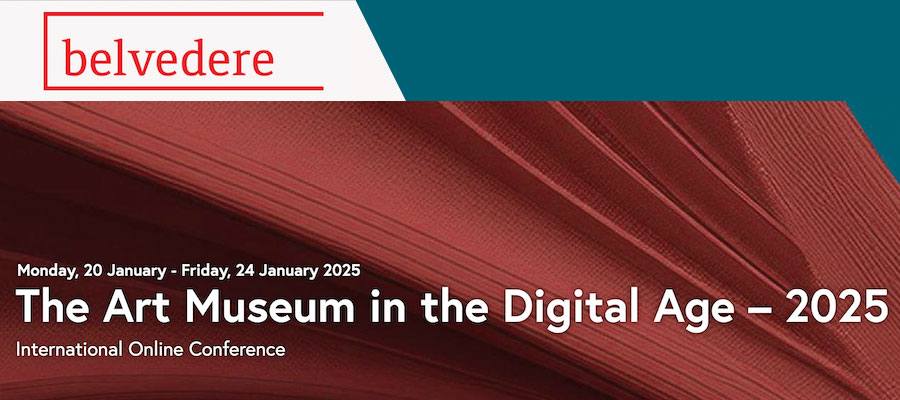The Art Museum in the Digital Age, Vienna and Online, January 20–24, 2024
The seventh edition of our conference series is dedicated to the ethical and social implications of the digital transformation in museums. Digital technologies present both opportunities and challenges. For example, museums can use digital media to make their collections accessible to a wider audience and create interactive experiences. At the same time, however, they must also take into account matters of data security, copyright, and cultural representation. In this context, digital humanism in museums refers to the integration of digital technologies and methods into museum practice to improve the understanding and accessibility of cultural heritage. This approach aims to bring human values and social aspects of culture to the fore while using modern technologies to intensify the interaction between artwork and audience. Digital humanism recognizes the potential of information technology but at the same time identifies possible threats and the need for ethical guidelines in the context of artificial intelligence, automation, and job losses (Vienna Manifesto, 2019). Digital humanism in art and cultural heritage institutions therefore aims to ensure that the use of digital technologies does not become an end in itself or a playground for global corporations. This conference provides a platform for exchanging ideas and sharing best practices to shape the digital transformation in line with humanistic values.
Digital strategy: How should museums position themselves in a “dopamine culture” where powerful tech giants offer 24/7 digital overkill with far more intense stimuli? Are the tools fabricated by the industry even useful for our specific applications?
Artificial intelligence can help to analyze large amounts of data, recognize patterns, and create personalized experiences: At the same time, the use of AI raises ethical questions, particularly with regard to data protection, energy consumption, and the responsibility of museums to implement fair and transparent systems.
Inclusion and diversity: Museums face the challenge of presenting their content in a way that reflects the diversity of society. Digital platforms offer the opportunity to include the voices and perspectives of underrepresented groups, thus promoting a just and inclusive representation of history and culture. Participatory approaches such as crowdsourcing can actively involve visitors in the documentation and interpretation of collections, leading to dynamic and collaborative knowledge production.
Linked open data: By linking data from different sources, museums can increase the visibility of cultural artifacts, embed their collections in a global context, and facilitate access to information. This promotes not only research but also collaboration between institutions and the development of new, interdisciplinary projects.
Museum practice: Work in museums is constantly changing due to the advance of digitalization. The integration of digital technologies into museum practice requires employees to use new tools and systems effectively in their daily work. Continuous training and adaptation to new developments is essential. In the interest of sustainability, environmentally friendly practices must also be integrated and digital solutions developed that do not waste resources.
Sustainability: Digital developments should be sustainable and respect ecological, social, and cultural resources.
Ultimately, digital humanism helps to position museums as dynamic places of learning and exchange that reflect the diversity of human experiences and perspectives. This event aims to explore the intersections between digital technologies and humanistic approaches in museums and discuss how these synergies can improve the understanding and accessibility of cultural heritage. We are therefore looking for contributions that cover the following topics:
- Ethical issues in the context of digital technologies in museums
- The role of digital technologies in the mediation of cultural heritage
- Innovative approaches to the digital accessibility of collections
- Interactive and immersive experiences in digital space
- Source criticism and digital literacy in the age of deep fakes
- Accessibility, inclusion, and responsibility in digital initiatives
- Preservation and conservation of born-digital objects
- The power of platforms in museums
- The future of digital humanism in museum practice
Conference languages: German & English
All talks will be held online. The panel discussion and a workshop for registered participants (Friday) will also take place in person at the Belvedere, Vienna. Participation in the conference is free of charge.
